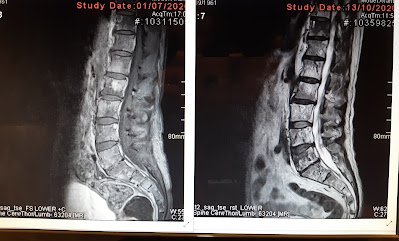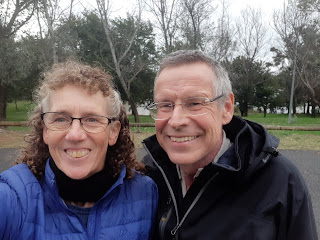Praise for a Prognosis!
Yet not welcome any pain?
Shall I thank You for days of sunshine
Yet grumble in days of rain?
Are You good only when I prosper...
And God only when I’m well?
You are good when I’m poor and needy...
You still reign in the deepest valley
You’re still God in the darkest night
Oh let Your will be done in me
In Your love I will abide
Oh I long for nothing else
(extracts from the song by Mark Altrogge)
Appointments with the oncologist have gradually settled down to a regular monthly occurrence. Arriving at the cancer centre we check-in at the desk then wait for a while. Soon a nurse assistant measures Geoff’s weight and vital signs. Back to the waiting room for a while. Next the oncology registrar calls us in for a preliminary consultation. After a while the oncologist enters, usually followed by the lung cancer nurse. Working together as a team, they review Geoff’s present health and consider directions for ongoing treatment.
Information-gathering and decision-making usually involves:
checking Geoff’s clinical presentation
weight, temperature, pulse, blood pressure and blood oxygen level
visible changes such swelling, rashes, skin bleeding
sites and levels of pain or numbness
listening to his own perception of current mental and physical experiences
appetite, sleep, energy levels
clarity of thoughts
recollections of recent activities
asking me to complete the picture with details and an overall perspective
Geoff’s answers may relate to what happened most recently such as how well he slept last night rather than describing trends or changes over the whole month
typically the darker the mind issues the less he is able to remember or describe so I pray for wisdom to say what is needed without adding to Geoff’s anxiety
a spreadsheet of every dose of every medication taken at home with daily notes about sleep, pain, mind issues plus ability to do tasks and activities helps me to answer the questions accurately
reporting on recent scans and blood tests
a brief summary of the radiographer’s report, (one time images were shown)
kidney, liver and thyroid functions, vitamin, ion and iron levels
addressing developing symptoms
discussing strategies and activities, drugs and GP consultations
reducing medication when appropriate
instructing me on managing the dosage, how to assess Geoff’s response and decide whether to continue with the reduction
ordering investigative tests to monitor the disease
brain or spine MRI, chest and body CT, specific blood tests…
the future - is there a prognosis?
no answer because Geoff is the second worst case the oncologist has ever seen and he was not expected to be here now.
As we leave the cancer centre, there is usually a sense of optimism because another appointment suggests that we still have time together. Yet it's also when information overload and my responsibility for implementing the adjusted treatment plan weighs heavily.
Imagine our feelings of disbelief, when the registrar told us that cancer in the spinal column has resulted in a broken vertebra and that compared to the first imaging at the start of July, the Leptomeningeal (LM) disease continues to be a major cause of concern.
On entering, the oncologist chatted with Geoff whilst checking the diplopia. Only a narrow region of single vision can be identified. Even so, the oncologist has been impressed with Geoff’s overall clinical improvement. Addressing the scan results, he suggested that the LM disease may have worsened after the July scan and before the targeted drug therapy began to have an effect. Likewise, the broken vertebra may be evidence that the drug is attacking cells in the bone tumors, some of which may have been holding the bone together.
For the first time, the oncology team were willing to indicate a prognosis: at least six months but if the targeted drug continues to be effective he may have a year or more!






Yes! Sounds like the targeting treatment might be working! Praying that it is. The more time you “buy” the more new treatments come on stream. Enjoy each day. That is all we really have anyway. No one, except the Lord knows what tomorrow brings. And that’s a relief!
ReplyDelete